Filter by
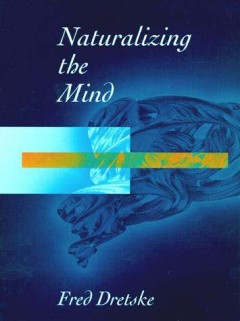
Naturalizing the mind
Naturalizing the Mind skillfully develops a representational theory of the qualitative, the phenomenal, the what-it-is-like aspects of the mind that have defied traditional forms of naturalism. Central to Dretske's approach is the claim that the phenomenal aspects of perceptual experiences are one and the same as external, real-world properties that experience represents objects as having. Comb…
- Edition
- -
- ISBN/ISSN
- 9780262271974
- Collation
- 1 online resource (xvi, 208 pages).
- Series Title
- -
- Call Number
- -
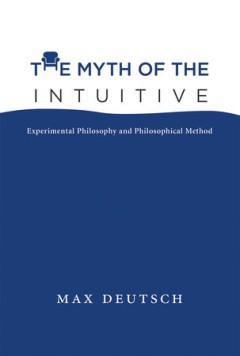
The Myth of the Intuitive: Experimental Philosophy and Philosophical Method
In The Myth of the Intuitive, Max Deutsch defends the methods of analytic philosophy against a recent empirical challenge mounted by the practitioners of experimental philosophy (xphi). This challenge concerns the extent to which analytic philosophy relies on intuition—in particular, the extent to which analytic philosophers treat intuitions as evidence in arguing for philosophical conclusion…
- Edition
- -
- ISBN/ISSN
- 9780262327374
- Collation
- -
- Series Title
- -
- Call Number
- -
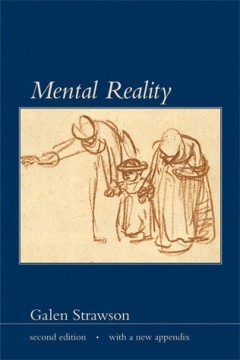
Mental reality (Second Edition, With A New Appendix)
"A Bradford book.""In Mental reality, Galen Strawson argues that much contemporary philosophy of mind gives undue primacy of place to publicly observable phenomena, nonmental phenomena, and behavioral phenomena (understood as publicly observable phenomena) in its account of the nature of mind. It does so at the expense of the phenomena of conscious experience. Strawson describes an alternative …
- Edition
- 2nd ed., with a new appendix.
- ISBN/ISSN
- 9780262259224
- Collation
- 1 online resource (xx, 373 pages) :illustrations.
- Series Title
- -
- Call Number
- -
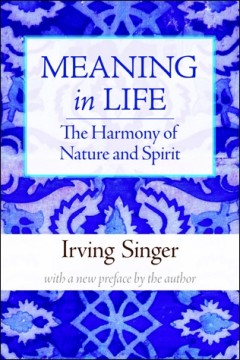
Meaning in Life: The harmony of nature and spirit
An acclaimed philosopher suggests that the art of living well employs the same principles as those that exist in all artistic creativity.This final book in Irving Singer's Meaning in Life trilogy studies the interaction between nature and the values that define human spirituality. It examines the ways in which we overcome the suffering in life by resolving our sense of being divided between the…
- Edition
- -
- ISBN/ISSN
- 9780262259200
- Collation
- 1 online resource (xix, 222 pages).
- Series Title
- -
- Call Number
- -
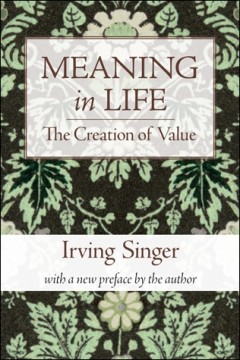
Meaning in Life: The creation of value
What is meaning in life? Does anything really matter? How can a life achieve lasting significance? How can we explain the human propensity to struggle for ideals? How is meaning related to contentment, happiness, joy? Is meaning something we discover, or do we create it? What is the nature of value, and what are its sources in human experience? Can there be a meaning in life without religious f…
- Edition
- -
- ISBN/ISSN
- 9780262259187
- Collation
- 1 online resource (xxv, 158 pages).
- Series Title
- -
- Call Number
- -
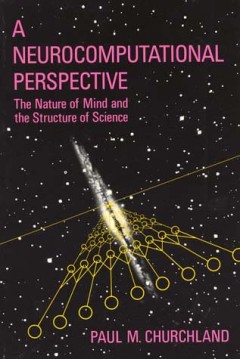
A neurocomputational perspective :the nature of mind and the structure of sci…
If we are to solve the central problems in the philosophy of science, Paul Churchland argues, we must draw heavily on the resources of the emerging sciences of the mind-brain. A Neurocomputationial Perspective illustrates the fertility of the concepts and data drawn from the study of the brain and of artificial networks that model the brain. These concepts bring unexpected coherence to scattere…
- Edition
- -
- ISBN/ISSN
- 9780262270328
- Collation
- 1 online resource (xvii, 321 pages) :illustrations
- Series Title
- -
- Call Number
- -
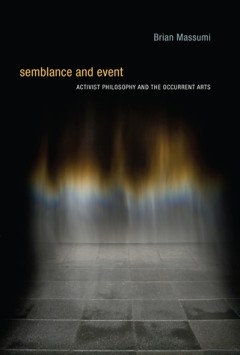
Semblance and event : Activist Philosophy and the Occurrent Arts
An investigation of the "occurrent arts" through the concepts of the "semblance" and "lived abstraction."
- Edition
- -
- ISBN/ISSN
- -
- Collation
- 1 online resource (xii, 220 pages) :
- Series Title
- -
- Call Number
- -
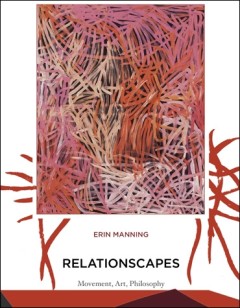
Relationscapes : Movement, Art, Philosophy
Exploring the relation between sensation and thought through the prisms of dance, cinema, art, and the new media, Manning argues for the intensity of movement, developing the concept of preacceleration which makes palpable how movement creates relational intervals out of which displacements take form.
- Edition
- -
- ISBN/ISSN
- -
- Collation
- 1 online resource (x, 268 pages) :
- Series Title
- -
- Call Number
- -
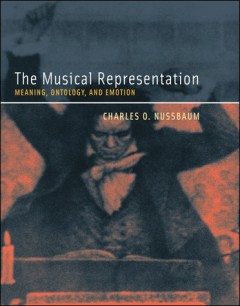
The Musical Representation : Meaning, Ontology, and Emotion
Annotation
- Edition
- -
- ISBN/ISSN
- -
- Collation
- 1 online resource (400 pages)
- Series Title
- -
- Call Number
- -
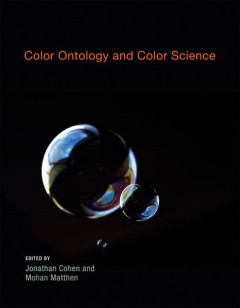
Color ontology and color science
Here, leading scientists and philosophers examine new problems with new analytic tools, considering such topics as the psychophysical measurement of colour and its implications, and questions that arise from what we now know about the neural processing of colour information, colour consciousness, and colour language.
- Edition
- -
- ISBN/ISSN
- -
- Collation
- 1 online resource (xxiii, 419 pages) : illustrations.
- Series Title
- -
- Call Number
- -
 Computer Science, Information & General Works
Computer Science, Information & General Works  Philosophy & Psychology
Philosophy & Psychology  Religion
Religion  Social Sciences
Social Sciences  Language
Language  Pure Science
Pure Science  Applied Sciences
Applied Sciences  Art & Recreation
Art & Recreation  Literature
Literature  History & Geography
History & Geography